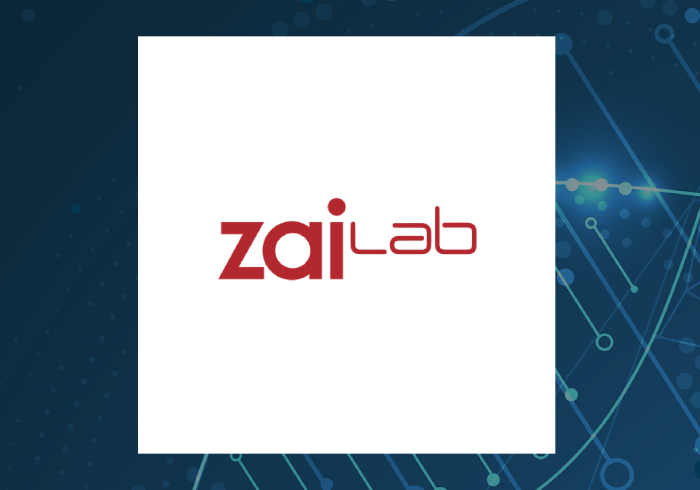FDA Grants Orphan Drug Designation to Novel DLL3 Antibody-Drug Conjugate
Zai Lab Limited recently announced a significant development in the fight against small cell lung cancer (SCLC). The U.S. Food and Drug Administration (FDA) has granted Orphan Drug Designation to ZL-1310, a potentially groundbreaking first-in-class DLL3 antibody-drug conjugate. This designation recognizes the urgent need for innovative treatments in SCLC and underscores the promise of ZL-1310 in addressing this challenging disease.
Dr. Rafael G. Amado, President and Head of Global Research and Development at Zai Lab, emphasized the importance of this designation, stating, “Receiving an Orphan Drug Designation for ZL-1310 recognizes its potential to treat patients with SCLC. These patients have an urgent need for innovative treatment options with improved efficacy, safety and ready access in tertiary care and community settings.”
The Orphan Drug Designation brings with it several key benefits for Zai Lab and potentially for patients:
1. Waiver of the Prescription Drug User Fee Act registration application fee
2. Tax credits for certain clinical trials
3. Potential for seven-year U.S. market exclusivity upon product approval
These incentives are designed to encourage the development of treatments for rare diseases, which often face challenges in attracting research investment due to limited market potential.
ZL-1310 has already shown promise in ongoing clinical trials. Recent data from a global Phase 1a/1b study in patients with previously treated extensive-stage SCLC (ES-SCLC) revealed encouraging results. The study, which included patients who had undergone at least one prior platinum-based chemotherapy regimen, demonstrated promising objective response rates and a favorable safety profile.
Dr. Amado expressed optimism about the future of ZL-1310, stating, “We look forward to continuing to advance the clinical development of this promising asset across lines of therapy in SCLC and other DLL3-expressing tumors.” This suggests that Zai Lab is exploring the potential of ZL-1310 not only in SCLC but also in other cancers that express the DLL3 protein.
The data from the ongoing study was presented at the EORTC-NCI-AACR (ENA) Symposium 2024 in October, further highlighting the scientific community’s interest in this novel treatment approach.
Commentary by SuppBase columnist Alice Winters:

The recent FDA Orphan Drug Designation for ZL-1310 marks a significant milestone in the ongoing battle against small cell lung cancer, a devastating disease that has long challenged researchers and clinicians alike. This development warrants a closer look at its implications for both patients and the broader landscape of cancer treatment.
Firstly, the mechanism of action of ZL-1310 as a DLL3 antibody-drug conjugate is particularly intriguing. DLL3 (Delta-like ligand 3) is a protein that is highly expressed in SCLC but has limited expression in normal tissues, making it an ideal target for cancer therapy. By leveraging this specificity, ZL-1310 has the potential to deliver cytotoxic agents directly to cancer cells while minimizing damage to healthy tissues. This targeted approach could represent a significant advancement over traditional chemotherapy, potentially offering improved efficacy and a more favorable side effect profile.
The promising objective response rates and safety profile observed in the Phase 1a/1b study are encouraging, but it’s crucial to maintain a balanced perspective. Early-phase trials often show promising results that may not always translate to larger, more diverse patient populations. As ZL-1310 progresses through later-stage trials, it will be essential to monitor its performance across a broader range of patients and in comparison to current standard-of-care treatments.
The Orphan Drug Designation itself is a double-edged sword. While it provides valuable incentives for Zai Lab to pursue the development of ZL-1310, it also highlights the relatively small patient population affected by SCLC. This designation is typically reserved for drugs targeting diseases affecting fewer than 200,000 people in the United States. While this ensures focused development, it also raises questions about potential pricing and accessibility should ZL-1310 reach the market.
Moreover, the potential seven-year market exclusivity period is a significant boon for Zai Lab but may have implications for market competition and drug pricing. While exclusivity can encourage innovation by protecting the substantial investments made in drug development, it can also lead to higher prices for patients and healthcare systems.
The exploration of ZL-1310’s potential in other DLL3-expressing tumors is an exciting prospect. If successful, this could expand the impact of this treatment beyond SCLC, potentially benefiting a larger group of cancer patients. However, this also underscores the need for robust biomarker testing to identify patients most likely to benefit from the treatment.
In conclusion, while the Orphan Drug Designation for ZL-1310 is undoubtedly a positive development in the fight against SCLC, it’s important to view it as a promising step rather than a guaranteed breakthrough. As the drug progresses through clinical development, key areas to watch will include its efficacy in larger trials, its safety profile over extended use, its potential in other cancer types, and, crucially, its accessibility and affordability for patients if it reaches the market. The journey from promising early results to a widely available, effective treatment is often long and complex, but ZL-1310 represents a beacon of hope in a field where new options are sorely needed.



